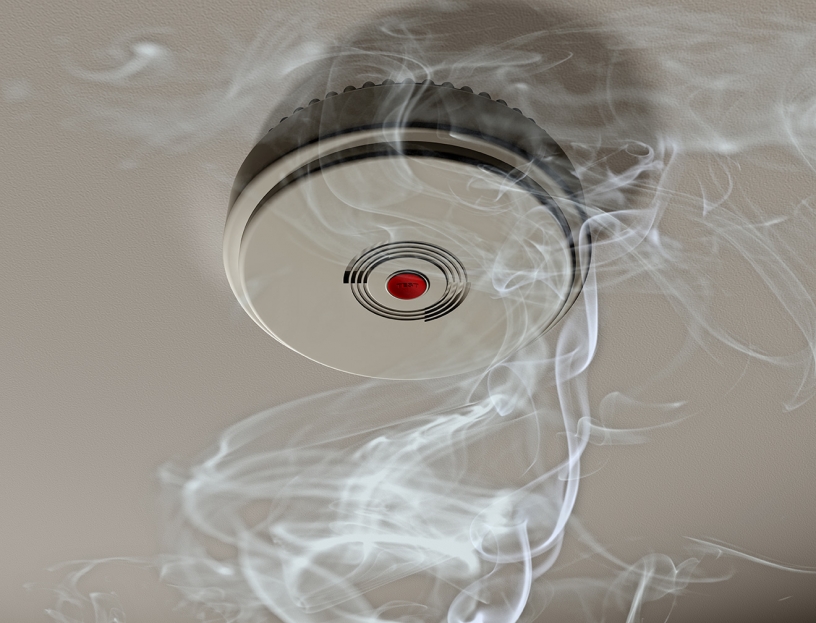Smoke Detectors
 Is a smoke detector really necessary in your home? Absolutely! Smoke detectors are proven lifesavers. More fatal fires occur at night when people are sleeping. Fire produces toxic gases which can numb your senses and prevent you from reacting to a fire in your home.
Is a smoke detector really necessary in your home? Absolutely! Smoke detectors are proven lifesavers. More fatal fires occur at night when people are sleeping. Fire produces toxic gases which can numb your senses and prevent you from reacting to a fire in your home.
Installation
- Install a smoke detector on each level of your home.
- The detector should be centrally located between the bedrooms.
- Place smoke detectors in each bedroom.
- If you, or someone in your home is deaf or hard of hearing, consider installing an alarm that combines flashing lights, vibration and/or sound.
- Mount smoke alarms high on walls or ceilings (remember, smoke rises). Ceiling mounted alarms should be installed at least four inches away from the nearest wall; wall-mounted alarms should be installed four to 12 inches away from the ceiling.
- If you have ceilings that are pitched, install the alarm near the ceiling's highest point.
- Don't install smoke alarms near windows, doors, or ducts where drafts might interfere with their operation.
Test and Maintain
- Test detectors once a month.
- Detectors should not be painted.
- Most units should be vacuumed once a year to remove cobwebs and dust that may impair a detector's sensitivity.
- Never paint smoke alarms. Paint, stickers, or other decorations could keep the alarms from working.
- Smoke alarms don't last forever. Replace your smoke alarms every ten years. California law requires that the new alarm you buy will have a ten-year, sealed battery.
Replace Batteries Semiannually
- Change Your Clock, Change Your Battery.
- Whenever your change your clocks to or from daylight saving time you should also change the batteries in your smoke detectors.
What to Do if Your Alarm Sounds
- Don't try to fight the fire yourself.
- Get out of the house as quickly as possible.
- Call 9-1-1 as soon as you are out of the house.
What to Do if Your Detector Makes a Chirping Sound
- A chirping sound usually indicates a low battery. Replace the battery.
The information provided is a guideline only. To install, test and clean detector, follow the manufacturers instructions.

